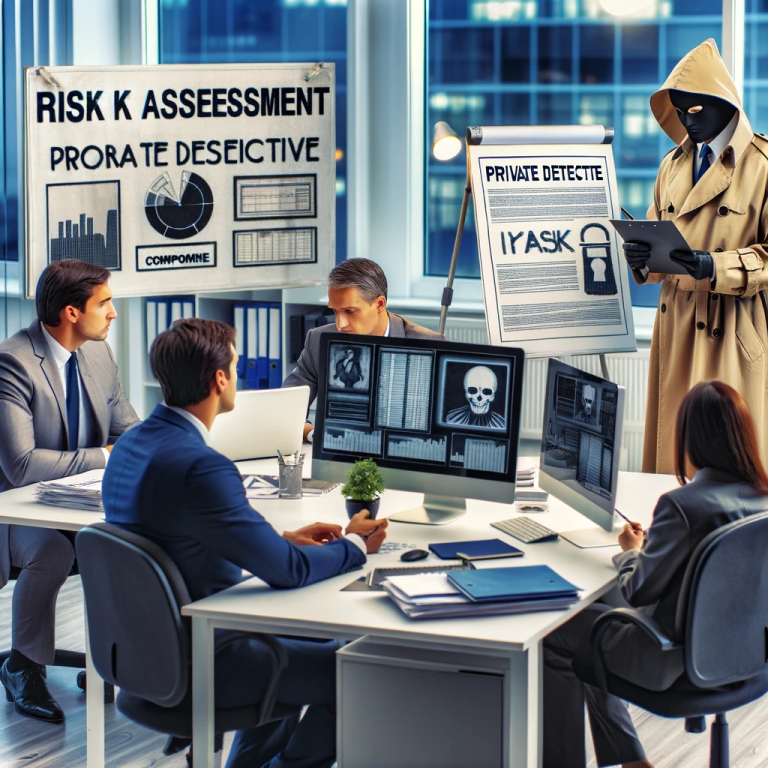Corporate espionage, also called industrial spying, involves stealing trade secrets or sensitive business information. This act is illegal and harms companies financially and strategically. With the rise in cyber threats, securing valuable information is more critical than ever. Company like AI Tech Hacks offer solutions for businesses to protect their sensitive data from being targeted by corporate spies or malicious insiders.
Over the years, several high-profile cases of corporate espionage have come to light. These incidents have shown us the growing importance of securing business data. They have also taught us valuable lessons about protecting sensitive information.
In this article, we will look at some of the biggest corporate espionage cases. We will also explore the lessons we can learn from these breaches and how businesses can safeguard against similar attacks.
1. The DuPont Case: Trade Secret Theft on a Grand Scale
In 2011, one of the biggest corporate espionage cases involved the U.S. company DuPont. A former employee, Walter Liew, was involved in a plot to steal DuPont’s trade secrets and sell them to a Chinese company. Liew worked with scientists to take information about DuPont’s production of titanium dioxide, a key ingredient in many products, including paint.
This case resulted in DuPont losing billions of dollars, but the U.S. government stepped in to prevent further damage. The courts convicted Liew and his partners of conspiracy and trade secret theft and sentenced them to several years in prison.
Lessons Learned
- Internal threats are real: Employees, especially those with inside knowledge, can become security risks.
- Monitor sensitive information: Companies must track who has access to valuable trade secrets and limit access to those who need it.
- International risks: Trade secrets can be valuable on a global scale, making foreign actors interested in stealing sensitive data.
2. The Uber and Waymo Case: Battle of the Autonomous Cars
Another major corporate espionage case involved Uber and Waymo, a subsidiary of Alphabet (Google’s parent company). In 2017, Waymo sued Uber for stealing its self-driving car technology. The case stemmed from allegations that Anthony Levandowski, a former Waymo engineer, downloaded 14,000 confidential files before leaving to join Uber. Waymo argued that Uber used this stolen technology to advance its own self-driving car program.
After a long court battle, the two companies reached a settlement. Uber agreed to pay $245 million to Waymo and promised not to use Waymo’s technology.
Lessons Learned
- Data theft can be high-tech: As companies develop cutting-edge technology, they must guard against theft of their intellectual property.
- Legal battles can be costly: Litigation can drag on for years and cost companies millions of dollars, even if they eventually settle.
- Implement strong exit policies: When employees leave a company, ensure they cannot take sensitive information with them.
3. The Samsung and LG Case: Corporate Rivalry Leads to Espionage
In 2012, two of South Korea’s largest tech companies, Samsung and LG, found themselves in the middle of a corporate espionage scandal. Engineers from LG were accused of stealing Samsung’s OLED display technology. OLED (Organic Light-Emitting Diode) technology is essential for making high-quality displays for smartphones and TVs.
The investigation revealed that the engineers took photos of Samsung’s OLED technology and shared them with LG. Although the charges were eventually dropped, the case strained relations between the two companies.
Lessons Learned
- Competitors can be a threat: In highly competitive industries, rival companies may resort to illegal means to gain an edge.
- Be cautious with sensitive technology: Cutting-edge technologies are often targets for espionage. Companies need to protect their R&D (research and development) departments.
- Strengthen internal policies: Companies should enforce strict policies to ensure employees cannot easily steal proprietary information.
4. The GlaxoSmithKline (GSK) Case: Foreign Espionage in the Pharmaceutical Industry
The pharmaceutical industry also experienced a major case of corporate espionage. In 2016, four scientists working for GlaxoSmithKline (GSK) in the United States were charged with stealing trade secrets. These scientists planned to use GSK’s confidential information to set up their own company in China.
The stolen information included valuable research related to cancer treatment. The U.S. government arrested and charged the individuals involved, stopping the creation of the new company. However, GSK suffered significant losses in terms of research progress and potential revenue.
Lessons Learned
- Protect research and development: Companies involved in research, especially in the medical field, must implement strict security measures.
- Conduct employee background checks: Companies should screen employees who have access to sensitive information. Frequent checks can help detect potential risks.
- International espionage is growing: Espionage by foreign actors is increasing. Companies should take steps to protect their data globally.
5. The Boeing Case: Aerospace Espionage
In 2005, a former Boeing employee, Kenneth Branch, stole confidential information from Boeing’s competitor, Lockheed Martin. Branch had access to documents related to rocket technology and space exploration programs. He shared this information with Boeing to help the company win defense contracts over Lockheed Martin.
The case led to legal action and significant fines for Boeing. The U.S. government also suspended Boeing from bidding on certain military contracts, which hurt the company’s reputation and finances.
Lessons Learned
- Government contracts are at risk: Companies involved in defense or government contracts must be particularly vigilant against espionage.
- Fines and penalties can be severe: Companies caught engaging in corporate espionage may face huge fines and other penalties.
- Ethical behavior matters: Even if a company benefits from espionage in the short term, the long-term consequences can damage its reputation and financial standing.
Key Takeaways from Corporate Espionage Cases
Corporate espionage is a growing threat that affects companies across all industries. These high-profile cases offer important lessons:
- Internal threats are serious: Employees with access to sensitive information can be major security risks. Companies must monitor their employees carefully, especially those who handle trade secrets.
- Technology is a target: Cutting-edge technology and research are prime targets for corporate spies. Companies must invest in strong cybersecurity measures to protect their valuable intellectual property.
- Exit policies are essential: When employees leave a company, they can take valuable information with them. Strong exit policies, such as deactivating access to systems and securing files, are crucial.
- International espionage is on the rise: Companies must be aware of foreign actors seeking to steal trade secrets. This trend is especially prevalent in industries like technology, pharmaceuticals, and defense.
- Legal consequences are costly: Companies caught engaging in corporate espionage can face massive fines and penalties. Even if a company isn’t directly involved, lawsuits from espionage cases can cost millions.
- Reputation matters: Corporate espionage can harm a company’s reputation, making it harder to do business in the future. The trust of customers, investors, and partners can be difficult to regain after a breach.
These cases emphasize the necessity of robust cybersecurity practices, and the risks associated with espionage. To learn more about how to protect your business from espionage and cyber threats, visit AI Tech Hacks, they are specialize in ethical hacking and security solutions tailored to safeguard valuable assets and data.




